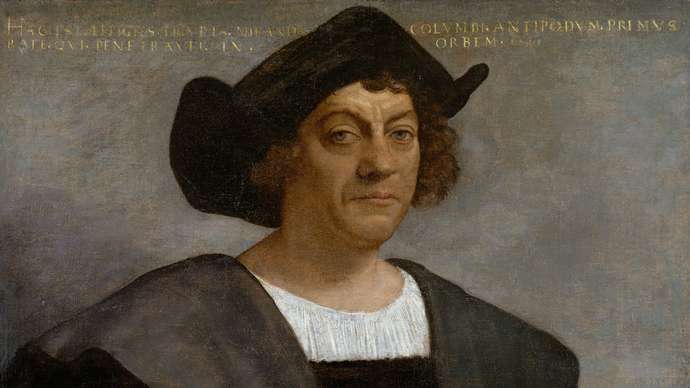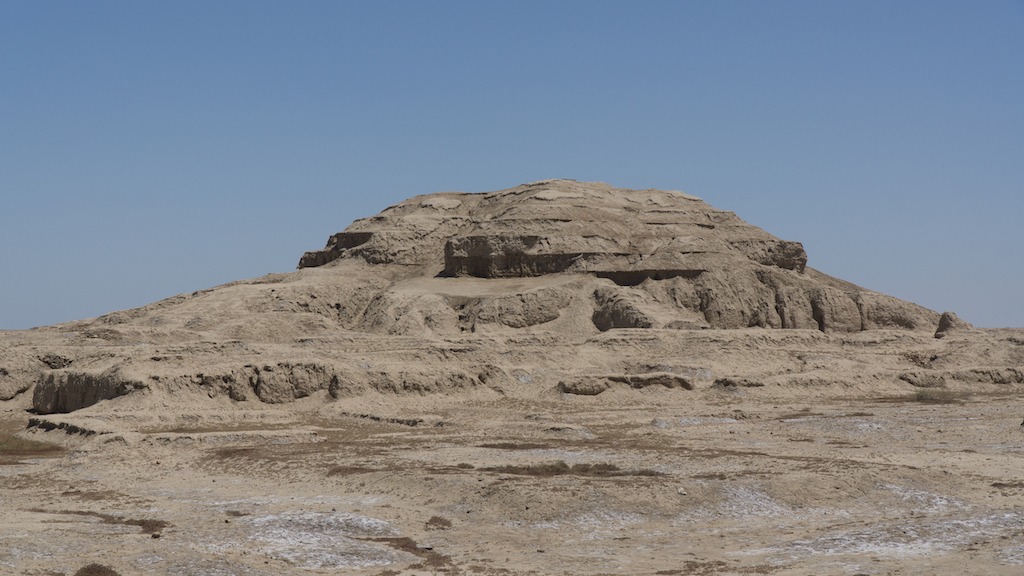Well was off yesterday and note that a lot of younger folks have no idea who Columbus was and why he was important to America. Some cancel culture folks want to call this indigenous people day, but how far back do we go? Pre-land bridge or after? Go all the way back and we would be in Africa. Go further back and it would be Pangea day. In any event here is the history of Columbus and the holiday from britannica.com:
"Columbus Day, in the United States, holiday (originally October 12; since 1971 the second Monday in October) to commemorate the landing of Christopher Columbus on October 12, 1492, in the New World. Columbus Day is celebrated on Monday, October 11, 2021.
Although his explorations were financed by King Ferdinand and Queen Isabella of Spain, Columbus was a native of Genoa, Italy, and over the years Italian Americans took up the cause of honouring his achievement. The 300th anniversary of his landing was celebrated in New York City in 1792 by the Society of St. Tammany, or Columbian Order, and the 400th anniversary, in 1892, by presidential proclamation nationwide. During the latter half of the 19th century, the day began to be celebrated in cities with large numbers of Italian Americans, and in 1937 it became a national holiday by presidential proclamation. The day came to be marked by parades, often including floats depicting the ships of Columbus, and by public ceremonies and festivities.
Christopher Columbus
Cristóbal Colón, (born between August 26 and October 31?, 1451, Genoa [Italy]—died May 20, 1506, Valladolid, Spain), master navigator and admiral whose four transatlantic voyages (1492–93, 1493–96, 1498–1500, and 1502–04) opened the way for European exploration, exploitation, and colonization of the Americas. He has long been called the “discoverer” of the New World, although Vikings such as Leif Eriksson had visited North America five centuries earlier. Columbus made his transatlantic voyages under the sponsorship of Ferdinand II and Isabella I, the Catholic Monarchs of Aragon, Castile, and Leon in Spain. He was at first full of hope and ambition, an ambition partly gratified by his title “Admiral of the Ocean Sea,” awarded to him in April 1492, and by the grants enrolled in the Book of Privileges (a record of his titles and claims). However, he died a disappointed man.
The period between the quatercentenary celebrations of Columbus’s achievements in 1892–93 and the quincentenary ones of 1992 saw great advances in Columbus scholarship. Numerous books about Columbus appeared in the 1990s, and the insights of archaeologists and anthropologists began to complement those of sailors and historians. This effort gave rise to considerable debate. There was also a major shift in approach and interpretation; the older pro-European understanding gave way to one shaped from the perspective of the inhabitants of the Americas themselves. According to the older understanding, the “discovery” of the Americas was a great triumph, one in which Columbus played the part of hero in accomplishing the four voyages, in being the means of bringing great material profit to Spain and to other European countries, and in opening up the Americas to European settlement. The more recent perspective, however, has concentrated on the destructive side of the European conquest, emphasizing, for example, the disastrous impact of the slave trade and the ravages of imported disease on the indigenous peoples of the Caribbean region and the American continents. The sense of triumph has diminished accordingly, and the view of Columbus as hero has now been replaced, for many, by one of a man deeply flawed. While this second perception rarely doubts Columbus’s sincerity or abilities as a navigator, it emphatically removes him from his position of honour. Political activists of all kinds have intervened in the debate, further hindering the reconciliation of these disparate views.
The first voyage of Christopher Columbus
The ships for the first voyage—the Niña, Pinta, and Santa María—were fitted out at Palos, on the Tinto River in Spain. Consortia put together by a royal treasury official and composed mainly of Genoese and Florentine bankers in Sevilla (Seville) provided at least 1,140,000 maravedis to outfit the expedition, and Columbus supplied more than a third of the sum contributed by the king and queen. Queen Isabella did not, then, have to pawn her jewels (a myth first put about by Bartolomé de Las Casas in the 16th century).
The little fleet left on August 3, 1492. The admiral’s navigational genius showed itself immediately, for they sailed southward to the Canary Islands, off the northwest African mainland, rather than sailing due west to the islands of the Azores. The westerlies prevailing in the Azores had defeated previous attempts to sail to the west, but in the Canaries the three ships could pick up the northeast trade winds; supposedly, they could trust to the westerlies for their return. After nearly a month in the Canaries the ships set out from San Sebastián de la Gomera on September 6.
On several occasions in September and early October, sailors spotted floating vegetation and various types of birds—all taken as signs that land was nearby. But by October 10 the crew had begun to lose patience, complaining that with their failure to make landfall, contrary winds and a shortage of provisions would keep them from returning home. Columbus allayed their fears, at least temporarily, and on October 12 land was sighted from the Pinta (though Columbus, on the Niña, later claimed the privilege for himself). The place of the first Caribbean landfall, called Guanahani, is hotly disputed, but San Salvador (Watlings) Island in the Bahamas is generally preferred to other Bahamian islands (Samana Cay, Rum Cay, or the Plana Cays) or to the Turks and Caicos Islands. Beyond planting the royal banner, however, Columbus spent little time there, being anxious to press on to Cipango, or Cipangu (Japan). He thought that he had found it in Cuba, where he landed on October 28, but he convinced himself by November 1 that Cuba was the Cathay mainland itself, though he had yet to see evidence of great cities. Thus, on December 5, he turned back southeastward to search for the fabled city of Zaiton (Quanzhou, China), missing through this decision his sole chance of setting foot on Florida soil.
Adverse winds carried the fleet to an island called Ayti (Haiti) by its Taino inhabitants; on December 6 Columbus renamed it La Isla Española, or Hispaniola. He seems to have thought that Hispaniola might be Cipango or, if not Cipango, then perhaps one of the legendarily rich isles from which King Solomon’s triennial fleet brought back gold, gems, and spices to Jerusalem (1 Kings 10:11, 22); alternatively, he reasoned that the island could be related to the biblical kingdom of Sheba (Sabaʾ). There Columbus found at least enough gold and prosperity to save him from ridicule on his return to Spain. With the help of a Taino cacique, or Indian chief, named Guacanagarí, he set up a stockade on the northern coast of the island, named it La Navidad, and posted 39 men to guard it until his return. The accidental running aground of the Santa María on December 25, 1492, provided additional planks and provisions for the garrison.
On January 16, 1493, Columbus left with his remaining two ships for Spain. The journey back was a nightmare. The westerlies did indeed direct them homeward, but in mid-February a terrible storm engulfed the fleet. The Niña was driven to seek harbour at Santa Maria in the Azores, where Columbus led a pilgrimage of thanksgiving to the shrine of the Virgin; however, hostile Portuguese authorities temporarily imprisoned the group. After securing their freedom Columbus sailed on, stormbound, and the damaged ship limped to port in Lisbon. There he was obliged to interview with King John II. These events left Columbus under the suspicion of collaborating with Spain’s enemies and cast a shadow on his return to Palos on March 15.
On this first voyage many tensions built up that were to remain through all of Columbus’s succeeding efforts. First and perhaps most damaging of all, the admiral’s apparently high religious and even mystical aspirations were incompatible with the realities of trading, competition, and colonization. Columbus never openly acknowledged this gulf and so was quite incapable of bridging it. The admiral also adopted a mode of sanctification and autocratic leadership that made him many enemies. Moreover, Columbus was determined to take back both material and human cargo to his sovereigns and for himself, and this could be accomplished only if his sailors carried on looting, kidnapping, and other violent acts, especially on Hispaniola. Although he did control some of his men’s excesses, these developments blunted his ability to retain the high moral ground and the claim in particular that his “discoveries” were divinely ordained. Further, the Spanish court revived its latent doubts about the foreigner Columbus’s loyalty to Spain, and some of Columbus’s companions set themselves against him. Captain Martín Pinzón had disputed the route as the fleet reached the Bahamas; he had later sailed the Pinta away from Cuba, and Columbus, on November 21, failing to rejoin him until January 6. The Pinta made port at Bayona on its homeward journey, separately from Columbus and the Niña. Had Pinzón not died so soon after his return, Columbus’s command of the second voyage might have been less than assured. As it was, the Pinzón family became his rivals for reward."
So hate him or like him the facts is this was on brave man that today is lacking to go onto the unknown to find a new passage for trade. Also this is the start outside of the Nords in America from Europe and the start of history in this part of the world. Keep in mind even the Indigenous People invaded from China and Russia over the land bridge, so this is a part of man's overcoming challenges. Also, the Indigenous People were not as nice as so many perceive them to be. They took slaves, killed humans for their gods, and killed other Indigenous People for land. Just like all other humans. The intent of this post is to identify why Columbus Day and the history of the man himself. I am attempting to put out the truth not made up stories from some cancel culture types that hate everything sadly.
References: https://www.britannica.com/biography/Christopher-Columbus/The-first-voyage
https://www.britannica.com/topic/Columbus-Day
I have lost a lot of faith with the Medical Community and the Governments over the last several years, but there are a few good things that can raise above the corruption and the pushing of drugs a new approach to heal people. The following is from www.gaia.com and written by Hunter Parsons that does not involve any drug or pushing an ineffective so called vaccine that the drug company is not held accountable in any way but they use sound! The use of sound can regrow bone tissue! Here is the story:
"The future of regenerative medicine could be found within sound healing by regrowing bone cells with sound waves.
The use of sound as a healing modality has an ancient tradition all over the world. The ancient Greeks used sound to cure mental disorders; Australian Aborigines reportedly use the didgeridoo to heal; and Tibetan or Himalayan singing bowls were, and still are, used for spiritual healing ceremonies.
Recently, a study showed an hour-long sound bowl meditation reduced anger, fatigue, anxiety, and ...
Not a fan of a Defense Agency studying Anti-Gravity and other Exotic Tech, but if the commercial world and make this technology cheap that will change our world yet again. The following is about three minute read and from www.gaia.com. The below was written by Hunter Parsons:
"Wormholes, invisibility cloaks, and anti-gravity — it’s not science fiction, it’s just some of the exotic things the U.S. government has been researching.
A massive document dump by the Defense Intelligence Agency shows some of the wild research projects the United States government was, at least, funding through the Advanced Aerospace Threat Identification Program known as AATIP.
And another lesser-known entity called the Advanced Aerospace Weapons System Application Program or AAWSAP
The Defense Intelligence Agency has recently released a large number of documents to different news outlets and individuals who have filed Freedom of Information Act requests.
Of particular interest are some 1,600 pages released to Vice News, which ...
As our technology gets better we are discovering more about the history of mankind and pushing the timeline back further and further. The following article is from www.gaia.com and written by Michael Chary that discusses this new find that changes the historical timeline:
"Over the past decade, there have been a number of archeological revelations pushing back the timeline of human evolution and our ancient ancestors’ various diasporas. Initially, these discoveries elicit some resistance as archeologists bemoan the daunting prospect of rewriting the history books, though once enough evidence is presented to established institutions, a new chronology becomes accepted.
But this really only pertains to the era of human development that predates civilization — the epochs of our past in which we were merely hunter-gatherers and nomads roaming the savannahs. Try challenging the consensus timeline of human civilization and it’s likely you’ll be met with derision and rigidity.
Conversely, someone of an alternative...
Not sure if you have heard of a show on YouTube called "The Why Files". If not you should check it out it is interesting and has some humor with it on different subjects. Last weeks was on a different theory how the Universe works and how main stream Science is attempting to shut it down like is always seems to do if it goes aguest some special interest. Today it is akin to what happened to those who questioned the Earth was the Center of the Universe that main stream so called Science all believed during the Renaissance period, They called any theory that the Earth was not the Center of the Universe misinformation. Does this sound familiar today? People laughed and mocked people like Leonardo da Vinci, Nicolaus Copernicus, Georg Purbach as crack-pots, conspiracy theorists, nut-jobs and they were suppressed and even imprisoned for their radical thoughts and observations. Again it sounds like today in so many ways. In any event this is a good one to ponder and see even if a bad idea ...
Seemingly chaotic systems like the weather and the financial markets are governed by the laws of chaos theory.
We all have heard about chaos theory, but if you have not or have forgotten what chaos theory is well here you go from interestingengineering.com:
"Chaos theory deals with dynamic systems, which are highly sensitive to initial conditions, making it almost impossible to track the resulting unpredictable behavior. Chaos theory seeks to find patterns in systems that appear random, such as weather, fluid turbulence, and the stock market.
Since the smallest of changes can lead to vastly different outcomes, the long-term behavior of chaotic systems is difficult to predict despite their inherently deterministic nature.
As Edward Lorenz, who first proposed what became commonly known as the Butterfly Effect, eloquently said, "Chaos: When the present determines the future, but the approximate present does not approximately determine the future.""
You may have heard the term about chaos theory as a butterfly flaps its wings in Brazil,...
I for one have lost trust in Medical Doctors due to COVID and reflection that they seem to push pills for everything and untested so called vaccines that is using a unproven technology because the Government and the Medical Boards of the State told them to. There are a very few exceptions. Thus they do not address the key problem just prescribe more and more pills to keep you alive an sick longer for them and Big Phama to profit from you. Will AI do any better? Well that depends on what was used for the training of AI. If it also pushes pills and vaccines without question then you have the same problems noted above. However, if the AI Training includes all possible forms of treatment and they zero in on the right issues for the true problem then there is possibilities they would be way better than most of the current Medical Doctors today.
The following is from an article from interestingengineering.com and written by Paul Ratner:
"A new study looks at how accurately AI can diagnose patients. We interview the researcher, who weighs in on AI's role ...





























